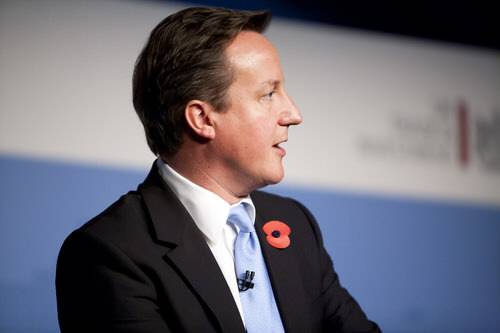
British Prime Minister David Cameron suggested Monday that the UK can no longer permit the use of secure messaging apps such as WhatsApp or Apple’s iMessage, which use encryption to shield messages from the prying eyes of government police and spies.
Cameron, who is kicking off a re-election campaign, promised “comprehensive legislation” to ensure that authorities can read all forms of electronic communications in order to protect the UK from terrorism.
“The first duty of any government is to keep our country and our people safe,” Cameron said, referencing the recent attacks on the Frensh satirical newspaper Charlie Hebdo. “The attacks in Paris once again demonstrated the scale of the terrorist threat that we face and the need to have robust powers through our intelligence and security agencies and policing in order to keep our people safe.”
“In our country, do we want to allow a means of communication between people … that we cannot read?” he asked.
The means of communication in Cameron’s remarks would include popular instant messaging applications such as WhatsApp, Apple iMessage, and Snapchat (but not Twitter). While Cameron didn’t specify any of these services by name nor threaten an outright ban, he did say that in his opinion, Britain “must not” allow people to communicate in ways that don’t allow the government to listen in.
Government surveillance of electronic communication has come under increased scrutiny since Edward Snowden’s leak of NSA documents in June 2013, although authorities on both sides of the Atlantic have battled against the widespread use of encryption for decades. In the U.S., the NSA and FBI spearheaded a 1990s campaign for the “Clipper chip,” a hardware “back door” that would have let police listen in on encrypted phone conversations. More recently, FBI director James Comey has inveighed against the way Apple and Google now encrypt stored data on smartphones, saying it could impede law enforcement.
Should Cameron’s idea come to pass, it’s not remotely clear how the British government would enforce a ban of messaging apps, the vast majority of which now encrypt messages while in transit.

















